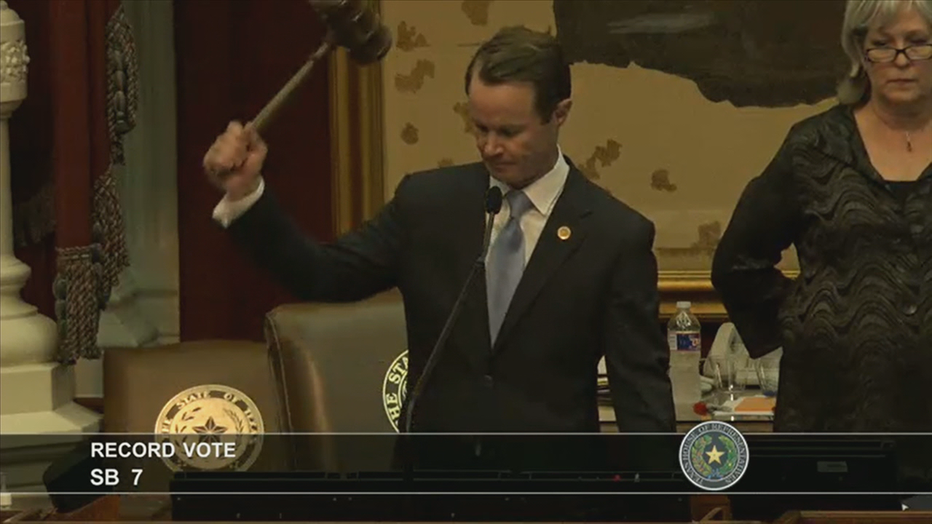Texas House passes controversial voting legislation after changes from Democrats
Texas House passes controversial voting legislation after changes from Democrats
The party line vote happened after Republican lawmakers conceded to several Democratic proposed amendments that softened the language on criminal penalties. The bill is headed to the Senate, where it could undergo more changes.
AUSTIN, Texas - Texas House lawmakers early Friday passed an election reform bill sponsored by Republicans that Democratic critics argue would limit voting access.
The party line vote happened after Republican lawmakers conceded to several Democratic proposed amendments that softened the language on criminal penalties. The bill is headed to the Senate, where it could undergo more changes.
The bill was passed at 3:05 a.m. after a late night of debating changes and several heated exchanges.
"If it’s not broken, what are we trying to fix?" said Rep. Jessica Gonzalez (D – Dallas).
At one point, Rep. Rafael Anchia (D – Dallas) called out the language in the bill as harkening back to a dark era. The bill's sponsor, Briscoe Cain (R - Deer Park), appeared to be caught off guard.
"You know the constitution commands the legislature to pass legislation to attack fraud to preserve the purity of the ballot box," Cain said.
"Are you aware that references to purity of the ballot box used throughout this country's history has been a justification for states to disenfranchise groups they deem unfit to vote or somehow lacking?" Anchia replied.
"I didn't know that, I thought it meant reducing fraud," Cain said.

If it becomes law, SB7 would create uniform voting in Texas, meaning county officials can't implement their own ways to provide voter access.
The bill, in its current form, does not include the more controversial measures to ban drive-thru voting or require a voter to state their physical condition which prevents them from going into the polls. But it would ban county officials from sending unsolicited mail in ballot applications -- a practice that received widespread attention in Harris County. The bill also limits early voting hours and gives partisan poll watchers the ability to make recordings inside polling locations.
There were some concessions made by Republicans in the House, but what Democrats call restrictions and Republicans call reform could be added back in a conference committee with the Senate
The Texas debate has attracted national attention, but SMU political science professor Matthew Wilson says other states have tempered some of the response.
"Texas is in fortunate position that Georgia went first and drew heat and fire. Now there has been pushback against corporations perceived to have overreached," Wilson said.
One Democratic amendment would require judges to inform defendants if they are flagged with a conviction that would make it illegal for them to cast a ballot. That is a response to the Crystal Mason case, a Tarrant County woman who was sentenced to five years in prison for casting a provisional ballot. She was on supervised release for a felony and said she did not know she was ineligible.
"Republicans are not interested in draconian penalties on people, some meaningful penalty is sufficient," Wilson said. "That is why there was willingness to lesson some of these penalties."
The Texas Senate and House will still need to agree on the final language of the bill before it heads to the desk of Governor Abbott.
If passed and signed, Democrats say they will fight the restrictions in court.
RELATED:
Voter suppression or voter integrity: Texas lawmakers spar over election bill
More businesses come out against voting bills proposed here in Texas

